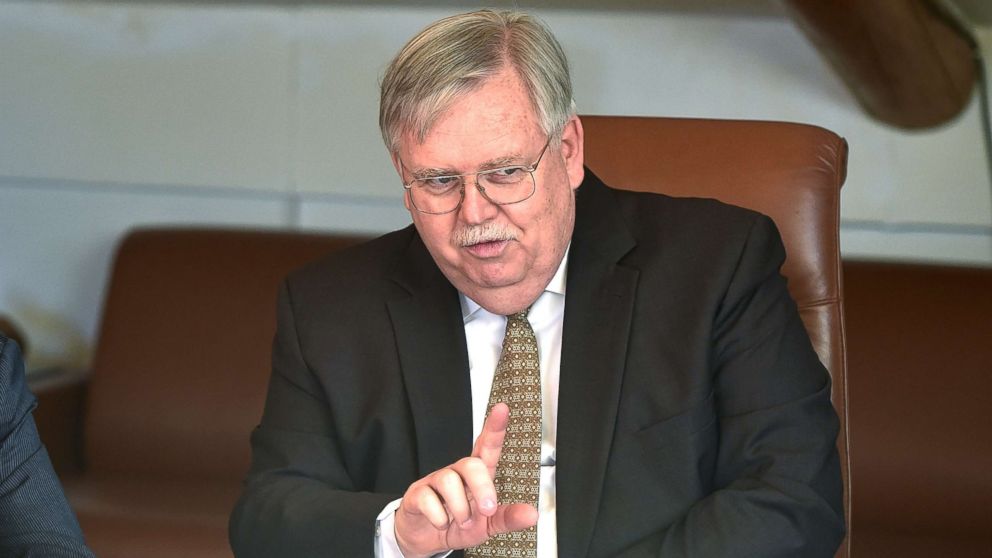Outgoing US ambassador to Moscow calls for 'cooperation on common interests'
John F. Tefft has been ambassador since 2014

— -- The United States’ outgoing ambassador to Moscow left Russia on Thursday after completing his posting, using the occasion to underline the Trump administration’s desire to halt the deterioration in the two countries’ relations.
John F. Tefft, who became ambassador in 2014, has served during an extended period of crisis between Moscow and Washington, arriving at the height of the confrontation with Russia over its invasion of Ukraine and representing the U.S. throughout the tumult following Moscow’s alleged meddling in the 2016 election. After a series of diplomatic tit-for-tats recently Moscow and Washington have appeared locked in a downward spiral.
In a farewell op-ed published in the English-language newspaper, The Moscow Times, Tefft said though he believed the administration wishes to restore more normal relations.
"From the earliest days of this administration we have said time and again that we would prefer a constructive relationship with Russia based on cooperation on common interests,” Tefft wrote. “I remain optimistic that our government’s will ultimately find a way forward. On our side, we’re certainly ready.”
Tefft was appointed ambassador by president Barack Obama, arriving in November 2014. A veteran diplomat, he has worked with the State Department for 45 years, beginning on the Soviet desk in the 1980s. In the op-ed, Tefft recalled he began his career amid tensions with Russia, after the Soviets shot down a Korean passenger airliner, killing 100 Americans.
The situation now, Tefft wrote, “has reached another low point.”
In recent weeks, he has had to weather dramatic cuts to U.S. diplomatic staff in Russia, imposed by the Kremlin in retaliation for new U.S. sanctions. Over 750 embassy personnel were obliged to leave their positions, close to two-thirds of the U.S. presence.
At odds in Syria and positioning troops against one another in eastern Europe, the U.S. and Russia have found themselves clashing on multiple fronts, a tense situation not seen since the chilliest days of the Cold War.
But Tefft, a genial and gentle-mannered ambassador, who would sometimes ply embassy guests with cookies baked from a family recipe, often sought to highlight the common history shared with his Russian hosts.
He sought out events marking moments of cooperation between Russia and the U.S., particularly those commemorating the Second World War when the two countries were allies.
Russia is a notoriously testing posting for U.S. diplomats, who are routinely subjected to KGB-inherited tactics of dirty tricks and permanent surveillance.
But despite the often heated rhetoric above him and sometimes about him –- a prominent Russian news channel once edited the ambassador into an image of an anti-Kremlin protest that he had not attended -- Tefft has presented an unruffled face, turning to wry humor more often than denunciations.
But recent events have permitted few opportunities for rapprochement. Tefft has spent much of his time conveying firm disapproval and warnings for Moscow to change its behavior.
Tefft is expected to be replaced by ex-Utah governor, Jon Huntsman, whose appointment was approved by the Senate Foreign Relations Committee on Tuesday. The full Senate will now vote to confirm his nomination.
Ambassador to China under Obama until 2011, Huntsman is considered well prepared for the unforgiving conditions of Russian politics. He has also been unambiguous on his beliefs that Russia meddled in the 2016 election. At his confirmation hearing last week he told senators that Russia was to blame for the downturn in relations because of its efforts to interfere in the election.




